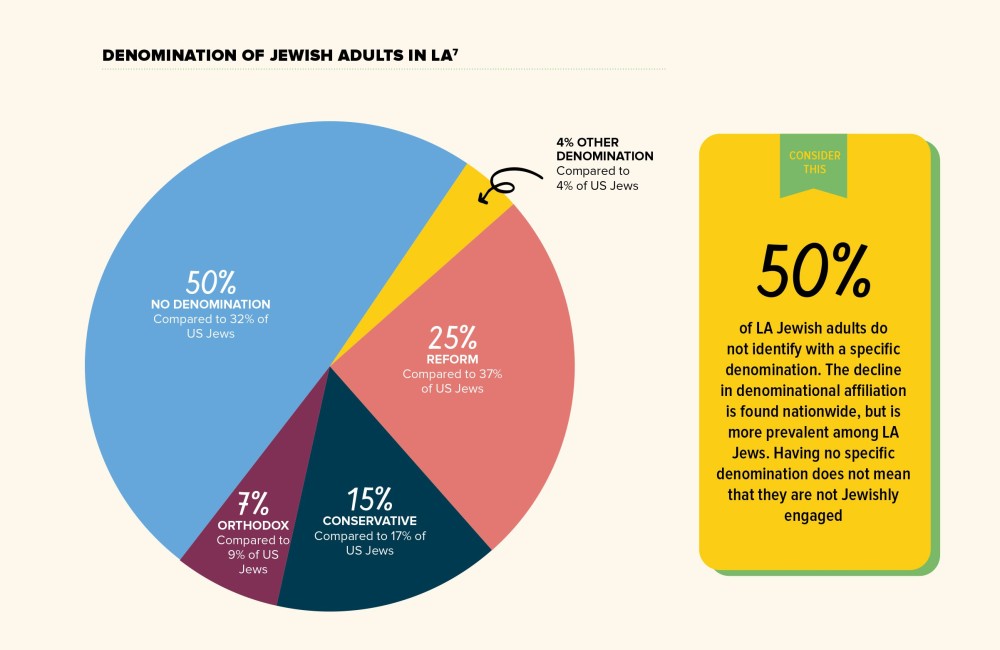A study of Jewish LA finds a growing and diverse community

About half of Jewish households in Los Angeles include an immigrant to the United States or someone whose parent is an immigrant, according to a new demographic report released by the Jewish Federation of Greater Los Angeles. These Jewish immigrants to the Golden State come from a range of countries, including Russia, Israel, Iran, Europe, and across Latin America.
“LA has always been, as West Coast Judaism has been, more diverse than Jewish life on the East Coast,” said Noah Farkas, chief executive officer of the Jewish Federation of Greater Los Angeles.
The Eastern European Jewish experience, Farkas said, has been seen as primary for a long time, but LA’s Jewish population shows that other communities “are rising in both their experience and their engagement with Jewish life.




